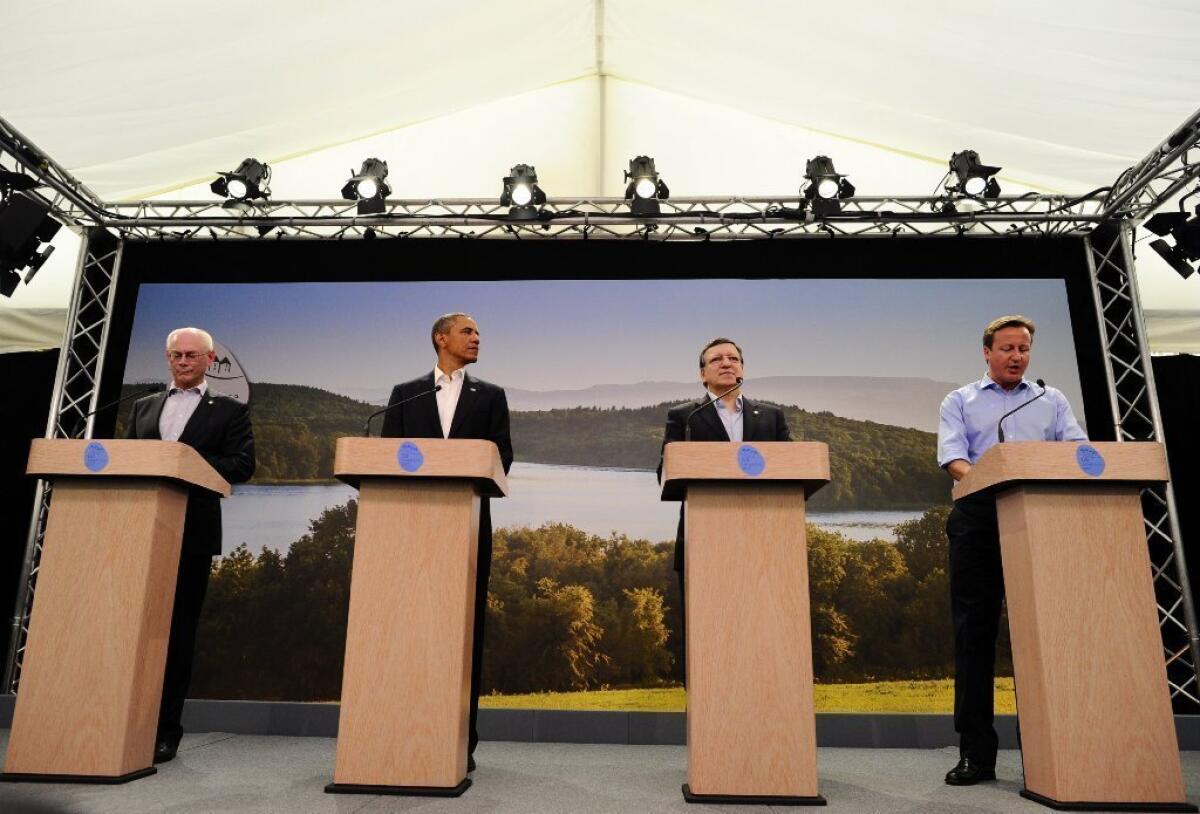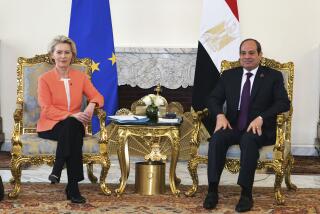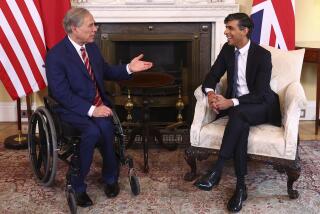U.S. and EU agree to launch free-trade talks

WASHINGTON -- The U.S. and the European Union will begin talks next month on an ambitious free-trade deal between the two rich regions that exchanged more than $645 billion in goods last year.
But the announcement, made Monday ahead of the Group of 8 summit in Northern Ireland, came against a backdrop of contention over French insistence that subsidized domestic movies remain protected as well as questions about U.S. government surveillance programs.
President Obama, standing alongside EU leaders and the United Kingdom’s prime minister, David Cameron, nonetheless hailed the proposed trans-Atlantic trade agreement as a “potentially groundbreaking partnership” that would deepen ties between two areas that account for about 45% of the global economy.
The aim is to reach a comprehensive deal that would remove all tariffs and develop uniform rules and standards on a wide range of goods and services that would bolster trade, investment and jobs. The first round of talks will be held in Washington, D.C., during the week of July 8.
The announcement was a victory for Cameron, who as host of this year’s G-8 summit made the launch of the talks a high priority. Cameron and other European leaders are particularly keen to energize a continent struggling with the Eurozone’s debt crisis and longstanding structural economic problems.
Analysts say a trade agreement could take two years to hammer out. The U.S. and Europe have very different standards, for example, in certifying safety of autos, even car bumpers. They have strong disagreements on agricultural goods, including acceptance of genetically modified foods and using names of products like Champagne that designate specific places of origin.
One of the most sensitive areas is the so-called cultural exception sought by the French, who want to protect films produced in France as well as French-language radio and other media from the long arm of Hollywood. The issue had threatened to stall the launch of the talks, but European officials on Friday essentially decided to punt on the matter.
More recently, revelations of the U.S. National Security Agency’s surveillance of telephone use and the Internet have prompted an outcry among some in Europe. They also have raised questions about the need for a trans-Atlantic agreement on data privacy standards, an important consideration for trade and investment particularly in the financial services and information industries.
“What’s come up recently with the NSA shows their different orientation,” said Chuck Dittrich, vice president at the National Foreign Trade Council in Washington. “That will be a challenging area to find common ground.”
ALSO:
Eurozone unemployment rate hits record 12.2%
G-8 meeting will test NSA leaks’ effect on U.S. influence
China, in dramatic shift, signals interest in U.S.-led trade talks







